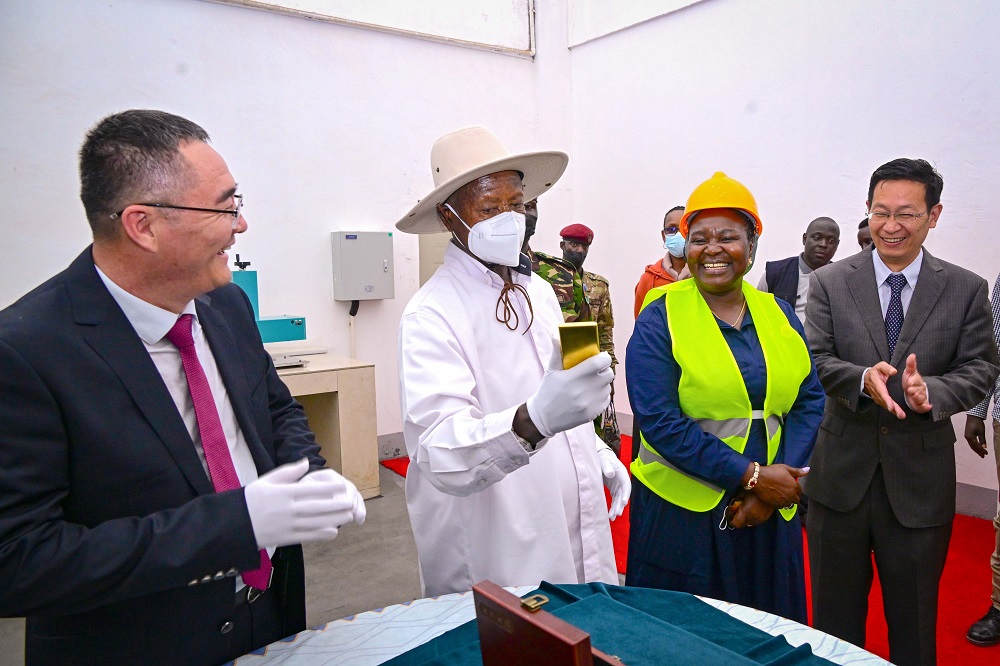President Yoweri Kaguta Museveni has imposed a sweeping ban on the export of unprocessed minerals, warning that the practice undermines Uganda’s long-term economic growth.
The Head of State issued the directive on Saturday evening while commissioning the multibillion-dollar Wagagai Gold Processing Project in Buteba Sub-County, Busia District – a landmark investment expected to industrialise Uganda’s mineral sector.
“We will not export unprocessed minerals, as this undermines our economy,” Museveni emphasised, vowing that his government will only allow value-added mineral exports.
The Wagagai facility, when fully operational, will refine gold to 99.9% purity, generating over US$100 million annually for 21 years and creating more than 5,000 jobs.
Uganda’s gold sector has grown into the backbone of the export economy. In the 2023/24 financial year, gold alone contributed 42% of all export receipts.
By March 2025, exports had already earned US$3.788 billion of the country’s US$11.81 billion (Shs 43 trillion) total foreign exchange earnings. In just the first five months of 2025, gold brought in US$1.91 billion.
Against that backdrop, Museveni said the time for half-measures is over:
“Wagagai aims to achieve 99.9% purity in gold processing locally, benefiting Uganda financially and creating over 5,000 jobs once fully operational. I urge other miners to ensure minerals are processed before export. By maximising our natural resources, gold, lithium, tea, iron, etc., we can create jobs and industrialize Uganda.”
Government officials project that the Wagagai refinery will anchor Uganda’s industrial base while positioning the country as a regional hub for gold processing.
Museveni’s renewed push for value addition – echoed across his recent economic addresses – is designed to restore mining as a driver of national growth, curb job flight, and expand industrial capacity.
“By processing here, we keep the wealth, we create employment, and we strengthen our economy,” the President stressed.
